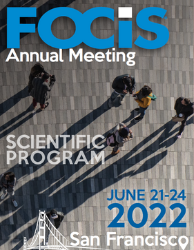Genome-wide Prioritization of Autoimmune Disease-associated Genetic Variants in T Cells Identifies a Risk Variant that Elicits Effector T Cell Differentiation
- JR
John Ray, PhD
Benaroya Research Institute
Seattle, Washington, United States - HV
Hans Dieter Volk
Institute of Medical Immunology, Charité Universitätsmedizin Berlin
Berlin, Berlin, Germany
Presenting Author(s)
Chair(s)
Genome-wide association studies have uncovered hundreds of autoimmune disease-associated loci; however, defining the causal genetic variant(s), most of which are in non-coding regions, and determining their effects in disease-relevant cell types remains a substantial challenge. Here, we test >18,000 autoimmune disease-associated non-coding variants for five autoimmune diseases for variant-modulated cis-regulatory activity in massively parallel reporter assays. We identify 60 putative disease-causal variants that likely play a role in altering T cell function. For one highly conserved non-coding variant within a putative enhancer, we used base editing to confirm a reduction in expression of the target gene BACH2 in a human T cell line, and we introduced a small deletion of the orthologous non-coding sequence in mice, resulting in reduced BACH2 expression in naïve CD8 T cells. T cells from these mice also had reduced expression of genes that suppress activation and maintain T cell stemness, a key function of BACH2, and, upon acute viral infection, variant-deleted naïve T cells are more likely to differentiate into effector cells. Our results represent an example of defining disease-causal variants and studying their immunologically relevant effects, allowing for discovery of disease-risk mechanisms.

